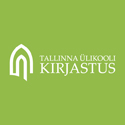Eestikeelses tekstiloomes eelistatud konstruktsioonid ja käändevormid [Contextual preferences in the use of case forms in text production in Estonian]
Abstract
The objective of the study was to compare contextual preferences in the use of case forms in two variants of Estonian – standard language (Standard Estonian corpus of the Institute of the Estonian Language) and learner language (Estonian interlanguage corpus of the Tallinn University). The material was most common nouns in Estonian inimene ‘person’, sõna ‘word’, elu ‘life’ ja aeg ‘time’. The statistics showed frequency of constructions and grammatical case forms in Text. Statistical representation of lexical units, grammatical forms and constructions has enabled us to reveal such linguistic data that, despite being characteristic of language use, is not easily accessible by traditional corpus-based analysis. Therefore we believe that corpus-driven studies using statistical and language software have a long-term theoretical and applied value (in language teaching and learning materials). Analysis of contextual preferences making explicit the hidden tendencies that are working in the language system synchronically. For this purpose, the grammatical constructions and their lexico-grammatical variants (allowing only certain case forms) typical of Standard Estonian and learner Estonian were found out. Mere statistics of case forms would never have provided the data on their use in constructions and on their preference order in text production. Results of this study showed that in both language variants, the clearly preferred case is the nominative. Further research should reveal whether this phenomenon can be considered a process of nominativization, and what its possible motivations could be.
Keywords
corpus linguistics, corpus-driven comparative language analysis, use of case forms in most frequently grammatical constructions, Estonian language
Full Text:
PDFRefbacks
- There are currently no refbacks.
Published by / Kirjastaja:

ISSN 2504-6616 (print/trükis)
ISSN 2504-6624 (online/võrguväljaanne)
